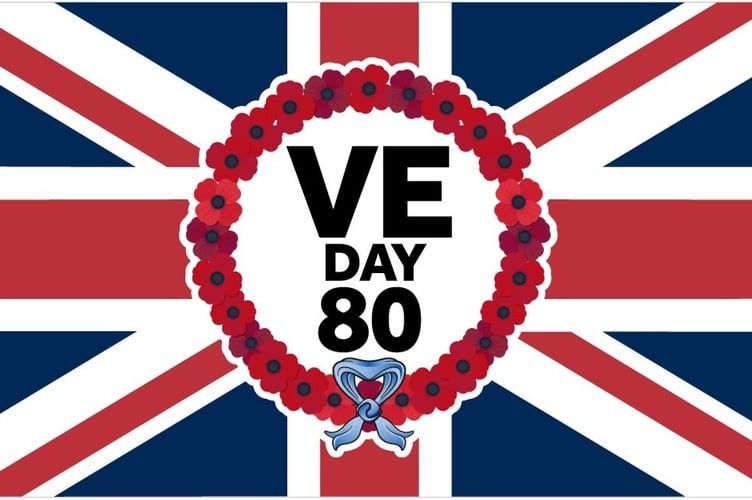VE Day: 80 Years On – How Can We Help Our Children Feel the Presence of Peace?
- ukindepschool
- May 6, 2025
- 3 min read

This May marks 80 years since Victory in Europe Day – VE Day – on May 8th, 1945.
On that day, crowds gathered across Britain and Europe to celebrate the official end of the Second World War in Europe. It was a moment of deep relief, unimaginable emotion, and cautious hope after six long years of war.
It’s tempting to see VE Day as a black-and-white photograph—distant, historic, no longer relevant. But for today’s generation, this anniversary offers something powerful: a rare opportunity to explore not just the facts of history, but the human experiences and values that shape our world today.
So, how do we help our children not just learn about VE Day—but feel its presence?
🌍 Why VE Day Still Matters in Education
VE Day was more than just the end of fighting in Europe. It marked the beginning of rebuilding—a time when families began to count their losses, communities began to heal, and nations tried to imagine peace.
In today’s world, children face new uncertainties: climate anxiety, global conflict on the news, social pressures. By reflecting on VE Day, we help them explore resilience, empathy, unity, and the real value of peace—concepts that matter as much now as they did then.
📚 How to Teach VE Day So Children Understand It
1. Make It Personal and Human
Children connect with stories, not statistics. Share:
Letters or diaries from evacuees, children during the Blitz, or soldiers returning home.
Short clips from BBC archives or interviews with real people who lived through WWII.
Books like Goodnight Mister Tom, Carrie’s War, or The Lion and the Unicorn to bring history to life through a child’s eyes.
2. Explore the Global Picture
VE Day marked the end of the war in Europe, but not worldwide. Introduce children to:
The role of Commonwealth countries and soldiers.
What was still happening in Asia and the Pacific.
Stories of refugees, prisoners of war, and families across the globe.
3. Ask Big Questions
Spark meaningful conversation:
Why do we remember wars?
Can we have freedom without peace?
What does it mean to forgive? Rebuild?
These help build critical thinking and emotional depth—both crucial to a well-rounded education.
🕊️ Help Children Feel the Presence of the Day
To truly connect, children need to emotionally engage with what VE Day represented: relief, joy, sorrow, and a desire for peace.
• Hold a Two-Minute Silence – With Context
Before the silence, talk about the sounds of war: sirens, bombing, separation. Ask:
“What might a child have heard that day?”
“What do you think peace sounded like?”
• Create a “Peace Jar” or “Wall of Hope”
Let children write down:
What brings them peace today.
What they wish for in the world.These can be displayed as a reminder of what we’re still working towards.
• Use Music to Capture Emotion
Play wartime songs like We’ll Meet Again or The White Cliffs of Dover. Compare them with modern songs about hope or togetherness. Ask:
How does music help people heal or stay strong?
✍️ Creative & Reflective Activities
Let children process their learning through art, imagination, and storytelling:
Write a diary entry as a child on May 8, 1945. What happened that day?
Design a street party – What music, food (within ration limits!), decorations would they include?
Bake wartime recipes with limited ingredients. A fun way to learn about rationing and resilience.
Interview a family member or neighbour about their family's war-time stories.
Create a peace poster or short poem reflecting on what VE Day teaches us now.
🧠 Why This Matters for Our Children’s Future
We don’t teach VE Day to glorify war. We teach it to:
Understand the cost of conflict
Appreciate the value of peace
Honour the everyday bravery of those who endured hardship
Help children develop emotional intelligence and global awareness
Children who explore history with empathy grow into adults who make thoughtful, informed decisions. They become not only exam-ready, but life-ready.
Final Reflection: What Kind of Learners Do We Want to Raise?
VE Day 80 is more than a milestone—it’s a moment to pause and ask:
Are we helping our children not just know history, but feel it?
In a world still struggling with division and conflict, it’s our responsibility—parents, teachers, mentors—to guide young minds toward empathy, understanding, and peace.
At UK Independent Education, we believe history should be lived, not memorised. Through creative teaching and personal reflection, we can ensure the next generation doesn't just remember the past—they grow from it.
.png)







Comments